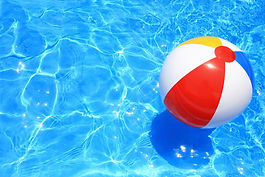ALL YOUR POOL NEEDS
We, the professionals, take pride on our work. Making our client's life easier is
our number one priority. Let us take care of you pool so you can enjoy the outcome with no worries at all!

Frequently Asked Questions
Pool Maintenance Mistakes
Why is there a white build up along the water line of my pool?
This usually means that your “total water hardness” is high (aka calcium is high)
Why will my pump not prime with water?
The typical problem associated with a non-priming pump is that you have an air leak on the suction side. The leak occurs most often at the fitting where the plumbing meets the pump. It is also common for a valve located on the suction side to be letting air in.
How often do I need to clean out the skimmer baskets?
This will be determined by how much vegetation you have around your pool… and how much actually falls into you pool and is accumulated by your skimmers. You should get into the habit of checking them at least once a day
How long do I have to wait to use my swimming pool after chemical treatment?
Generally it is safe to use your pool after chemicals have dispersed throughout the pool, usually 15 minutes to one hour. If shocking your pool, wait until the chlorine levels drops to recommended levels.
What causes Chlorine odor, red eyes and itchy skin?
These unpleasant conditions indicate that the pool water has not been properly treated. A common cause is high levels of chloramines, formed when chlorine combines with body oils, perspiration, urine and other contaminants brought into pools by swimmers.
Contrary to what most people think, a strong chemical smell is not an indication of too much chlorine in the pool. In fact, the pool may actually need additional chlorine treatment to get rid of chloramines and sanitize the water.
What is the benefit of an automatic cleaner?
Automatic cleaners increase the opportunity that your pool will always be "swim ready." Automatic cleaners today are sophisticated and reliable. There are many different types for all applications depending on the type of pool and your locality to suit your needs and existing equipment.
Since it is not possible for your pool professional to be in your yard every day to ensure all debris is cleared, this is an excellent option to ensure that algae does not have a good chance of getting hold of your pool's finish. The most common types of algae are caused botanical debris settling in your pool. Algae is unsightly, unhealthy for both swimmers and the longevity of your pool's finish (plaster). Automatic cleaners are a very good option in avoiding algae and staining of your pool's finish.
Is Chlorine safe for swimming pools?
Yes. Chlorine sanitizers are safe when used according to package directions approved by the U.S. Environmental Protection Agency. Chlorine levels within the recommended range for swimming pool water do not pose any known health risks. Chlorine sanitizers have been used safely and successfully as pool and hot tub disinfectants for over a century. The majority of public pools and 9 out of 10 residential pools are sanitized with chlorine.
What is the difference between the chemicals that a professional pool supply store sells compared to a big box retailer?
A big box retailer will not stock the variety of chemicals that a professional pool supply store can provide. You may be able to choose from several different brands at a professional pool supply store. Also, most of the highest quality brands can only be found through authorized dealers and NOT in a mass merchant.
Root. "Pool Maintenance FAQ." PoolRefs.com. N.p., n.d. Web. 20 Mar. 2017.
"FAQ - Maintenance." FAQ - Maintenance | SwimmingPool.com. N.p., n.d. Web. 20 Mar. 2017.


Neglecting to Brush Your Pool
This may seem like a no-brainer. You’ve heard how important brushing your pool is. You may even have a pool brush.
Then you got a pool vacuum. The brush has been sitting in storage because you think that the much more powerful vacuum will adequately clean your pool.
While a pool vacuum is great at collecting debris, regular brushing of the sides and bottom of the pool are necessary in eliminating bacteria, germs and algae.
Proper pool cleaning entails vacuuming, skimming and brushing.
Using an Automatic Cleaner to Vacuum Out Algae
Manually vacuuming you pool is difficult and time consuming. Therefore, many rely on automatic vacuums. Automatic vacuums, however, do a poorer job at taking algae out of the pool so when it comes to algae removal, stick with the manual vacuum.
Ignoring Your Pool’s pH and Alkalinity Levels
The proper balance of pool chemicals is key in making your pool safe. A low pH (acidic) pool will prevent algae and bacteria. It can also cause damage to your pool’s equipment. Some of the damages caused by overly acidic pool water may not be covered under warranty.
Proper alkalinity will keep the water in your pool stable, keeping it from fluctuating between basic and acidic.
Not Running the Pool’s Filter 8 Hours a Day
Your pool’s filter and pump are what make your pool clean. For a clean pool, it is important to cycle all the pool water at least once a day.
The amount of time for one cycle varies on the size of the pool, but most pools need at least 8 hours for one filtration cycle.
For cleaner water, multiple cycles will be needed. Don’t be afraid to run your pool filter and pump for 24 hours.
Neglecting to Regularly Test the Pool Water
You should test your pool’s water once a week to make sure your pool has the proper levels of chemicals.
A weekly, basic analysis of your pool’s pH and chlorine levels are the most important. On top of the weekly analysis, you should get a detailed monthly analysis of your pool’s water. The detailed reading should look at: free and total chlorine levels, pH and alkalinity levels, calcium hardness level, copper and iron levels, salt and total dissolved solids level (TDS) and phosphates and nitrates levels.
Test strips and liquid test kits will work for the weekly analysis. For the detailed analysis, bring a sample of your pool’s water to your local pool supply store.
For any questions about proper pool maintenance, contact the pool professionals at Sunplay today.
Buying a leaf skimmer instead of a leaf rake.
Look in the back of a pool service tech's work truck and you won't find a leaf skimmer. Instead you will find a leaf rake. Why? A leaf rake will do everything that a leaf skimmer will do and a lot more.
Try dipping a couple of leaves off the bottom of your pool with a leaf skimmer on your pole. Very difficult!
Our advice...get a leaf rake instead of a leaf skimmer. The leaf rake is the one with the red frame and the black net in the photo. Don't buy the cheap one! You get the quality you pay for
http://www.sunplay.com/blog/common-pool-maintenance-mistakes
https://www.inyopools.com/Blog/the-5-worst-pool-advice-we-have-ever-heard/
http://www.metro-pool-service.com/pool-cleaning-mistakes.html